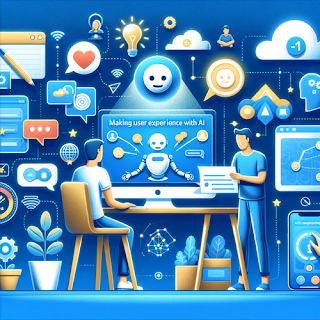🌍 Welcome to the Future of Creative Learning
Imagine if a student could turn a story they wrote into a beautiful painting — with no art supplies, no software experience, and no time wasted trying to learn Photoshop.
That future is already here.
Stride Learning, a leader in online education, is working with Stability AI (the team behind Stable Diffusion, a powerful image generator) and Amazon Bedrock to bring AI-powered creativity into classrooms across the world.
But this isn’t just for students, it’s a glimpse into how you, as a creator, learner, or dreamer, can tap into these tools to express yourself like never before, but let me brake down the whole thing into easy-to-understand- sections:
🧠 What Is Generative AI?
Generative AI is an artificial intelligence that can create things like stories, make art, generate music, or even build websites — all from your words (called a prompt)
What’s Happening with Stride Learning + Stability AI + AmazonExample:
You type: “A lion reading a book under a glowing tree at night.”
The AI generates a detailed, colorful image of exactly that.
Stride Learning is using these tools in real classrooms to help students turn essays into illustrated books, make visual presentations from written ideas or create original art.
All of this is powered by:
-
Stable Diffusion: A popular AI that creates images from text
-
Amazon Bedrock: A platform from AWS (Amazon Web Services) that provides easy access to powerful AI models, safely and securely
Basically, teachers and students don’t need to install complicated software, with Amazon Bedrock service, schools can plug into these tools with no tech knowledge.
How This Unlocks Student Creativity
For a long time, school has mostly been about reading, writing, and taking tests, but that kind of setup doesn’t work for everyone.
AI now offers:
-
More expression styles for students who struggle with writing might thrive in visual storytelling
-
Instead of spending hours drawing, they can illustrate a concept in minutes
-
Confidence boosts while seeing their ideas come to life gives them pride, especially for shy or neurodivergent students
This helps students see themselves as creators, not just consumers.
This means everyone gets to be a creator. You can use these same tools for your own growth. You don’t need to be in school to benefit. If you’re a:
-
Blogger
-
Educator
-
Creative entrepreneur
-
Or just someone on a self-development journey...
Generative AI can help you with plenty of things like
-
Visualize your goals through text to image/video prompts
-
Illustrate your stories or brand
-
Build mood boards, concepts, or learning aids
-
Start a faceless YouTube or Instagram channel
Prompt 1:
“A futuristic library in the sky with glowing books and colorful energy lines”
Style: digital painting, vibrant, cinematic lighting
Prompt 2:
“An African teenage girl presenting her invention in front of a class, in cartoon style”
Style: soft colors, detailed, hopeful mood
Prompt 3:
“A quiet monument in a forest surrounded by fireflies, fog, and golden lights”
Style: fantasy-realism, dusk setting
Prompt 4:
“A classroom of kids dreaming their future careers, each with holograms of jobs floating above their heads”
Style: bright, inspiring, mixed media
But Is It Still Art If AI Makes It?
This is a fair question. Here’s the truth. AI doesn’t replace creativity, it amplifies it.
The idea still comes from you. The vision is yours. The AI is just your paintbrush, a database full of information that includes the tools for turning queries into images or videos content.
Think of AI like:
-
A typewriter for writers
-
A camera for photographers
-
A keyboard for musicians
The tool doesn’t make you creative, it's a tool for you to use to make your creativity more powerful.
Why Amazon Bedrock Is a Game-Changer
For big schools or creators building apps, tools like Amazon Bedrock are powerful because you don’t need to host the AI models yourself, you can access multiple AIs (like Stability AI, Anthropic, and Meta) in one place, it’s secure and scalable for classrooms or businesses
In Stride’s case, Bedrock lets them safely bring AI into learning without risking privacy or safety — a big win in education tech.
Can You Make Money with AI Tools Like This?
Absolutely, and here are some examples of many people who already are.
-
Selling AI-generated art prints or merch on Etsy or Redbubble
-
Creating children's books using AI illustrations and stories
-
Offering AI-powered design services on Fiverr
-
Teaching others how to use AI via courses or tutorials created with AI(ex.chatGPT)
-
Faceless YouTube channels built using AI visuals + voiceovers
You could also use affiliate tools like:
-
Creative Fabrica (design assets)
-
Adobe Firefly (Creative Cloud)
-
Skillshare or Udemy courses on AI art or storytelling
So not to worry, it doesn’t replace talent, it doesn’t make everything that easy-you have to tweak, adjust, adapt etc. the contents to match your vision. But it does open the door and make the canvas a lot bigger.
Here’s how to get started:
-
Try Stable Diffusion tools like PlaygroundAI.com or Leonardo.Ai
-
Play with prompts like the ones above adding your twist!
-
Use AI in your projects: presentations, social media, blogs, resumes, videos
-
Explore monetization if you love the process (selling prints, digital products, or tutorials)
-
Stay curious — this tech is still evolving, and early adopters always win
Now it's your turn: What Will You Creat
What if your next idea could come to life in minutes?
What would you draw? Build? Share?
Let AI help you not replace your spark..
Creativity isn’t about perfection it’s about expression.
Now, you’ve got powerful new tools to express yourself make sure you use them.
































0.png)

